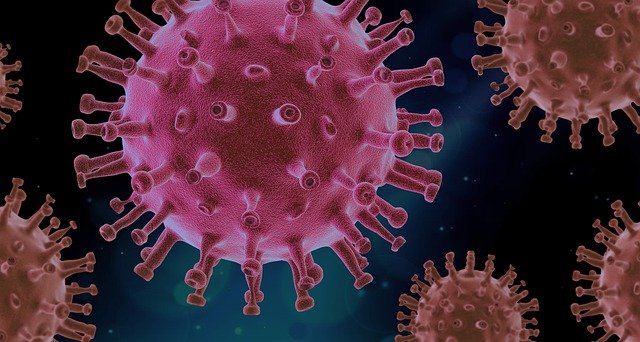Molnupiravir, a broad-spectrum antiviral, has been approved in the U.K. for the treatment of COVID-19. How does molnupiravir work, how was it developed, and what are the potential side effects?
What is molnupiravir?
Since the onset of the global pandemic, a lot of research has been done in the field of finding new treatments and prevention methods for COVID-19. A variety of existing medications, such as hydroxychloroquine, ivermectin, and remdesivir, have been repurposed and investigated for their antiviral or immune system-supporting properties.1,2 Having pharmaceutical treatments available for preventing COVID-19 disease progression and treating symptoms is important, given that not everyone chooses to or is able to receive the vaccination.
Due to a variety of factors, herd immunity has not been reached in the global population. Herd immunity refers to when a sufficient portion of a population is immune to a disease and there is a reduced likelihood of disease transmission between individuals.3,4 As a result, achieving herd immunity may help protect unvaccinated individuals and contribute to a reduced burden of COVID-19 in the population as a whole.
Among the most recent of these developments is molnupiravir, an existing medication that was developed about ten years ago and first tested in Liberia in 2016 to help prevent Ebola virus complications.1 It is currently undergoing clinical trials to determine whether it can help treat symptomatic COVID-19 in those infected with the SARS-CoV-2 virus, and the results are promising at this time.
A clinical trial performed by the pharmaceutical companies Merck and Ridgeback found that COVID-19 patients who received molnupiravir were about 50 percent less likely to be hospitalized or die within 30 days of treatment.5,6 The same study found that patients taking molnupiravir developed antibodies against SARS-CoV-2 at a rate comparable with those who received a placebo, which may suggest that the medication does not interfere with the body’s ability to develop antibodies against that pathogen.6
Molnupiravir is also currently being investigated for use in post-exposure prophylaxis, which refers to the prevention of developing COVID-19 after exposure to the SARS-CoV-2 virus.1,7 More research is needed to confirm whether it is an effective medication for either of these clinical purposes.
How does molnupiravir work?
As an antiviral, molnupiravir works to reduce the symptoms of a viral infection, such as COVID-19. It works well with ribonucleic acid (RNA) viruses, which is a classification of viruses that includes the SARS-CoV-2 virus.6 Molnupiravir is actually a prodrug of a chemical compound called beta-D-N4-hydroxycytidine (BHC), which means that it is converted into that chemical when it is metabolized by the body.6,8
Ultimately, molnupiravir works by encouraging the virus to develop mutations that can be harmful to the virus itself.6 This can impact the virus’ ability to thrive in the body, and in turn, reduce viral replication and viral load. With respect to COVID-19, some research suggests a potential association between high levels of the SARS-CoV-2 virus in the nasal passages and increased rates of hospitalization.6,9
Side effects of molnupiravir
Current research suggests that molnupiravir is well tolerated within typical doses and has a fairly mild side effect profile. Some commonly reported side effects include headache, insomnia, dizziness, and diarrhea.6 In the study conducted by Merck and Ridgeback, four patients in the study developed serious side effects; two patients were hospitalized for reduced oxygen saturation, one patient had acute respiratory failure, and one patient had a cerebrovascular accident, which refers to a significant loss of blood flow to the brain that can impact brain tissue.10 However, since COVID-19 may be associated with symptoms such as low oxygen levels, respiratory complications, and cardiovascular complications, it is unknown whether these side effects are linked to the drug or the disease.
Although studies show that molnupiravir may be effective in reducing the progression of symptomatic COVID-19 in those infected with the SARS-CoV-2 virus, more research is needed to confirm its effectiveness.
References
- Johns Hopkins Bloomberg School of Public Health (2021, October 18). Molnupiravir: The Game-Changing Antiviral Pill for COVID-19? Johns Hopkins University: Baltimore, MD. Accessed 2021, November 15, from https://publichealth.jhu.edu/2021/molnupiravir-the-game-changing-antiviral-pill-for-covid-19
- Centers for Disease Control and Prevention (2021, March 23). Potential Treatments. U.S. Department of Health and Human Services. Accessed 2021, November 22, from https://www.cdc.gov/coronavirus/2019-ncov/your-health/treatments-for-severe-illness.html
- Aschwanden, C. (2021, March 18). Five reasons why COVID herd immunity is probably impossible. Nature Portfolio. Accessed 2021, November 22, from https://www.nature.com/articles/d41586-021-00728-2
- Association for Professionals in Infection Control and Epidemiology (APIC) (2021, April 6). Herd Immunity. Arlington, VA, USA. Accessed 2021, November 22, from https://apic.org/monthly_alerts/herd-immunity/
- Merck (2021, October 1). Merck and Ridgeback’s Investigational Oral Antiviral Molnupiravir Reduced the Risk of Hospitalization or Death by Approximately 50 Percent Compared to PLacebo for Patients with Mild or Moderate COVID-19 in Positive Interim Analysis of Phase 3 Study. Merck Sharp & Dohme Corp., Merck & Co. Accessed 2021, November 22, from https://www.merck.com/news/merck-and-ridgebacks-investigational-oral-antiviral-molnupiravir-reduced-the-risk-of-hospitalization-or-death-by-approximately-50-percent-compared-to-placebo-for-patients-with-mild-or-moderat/
- Fischer, W., Joseph, J., Holman, W., et al (2021, June 17). Molnupiravir, an Oral Antiviral Treatment for COVID-19. MedRxiv. Doi: 10.1101/2021.06.17.21258639
- Precision Vaccinations (2021, September 1). Phase 3 Study Evaluating Oral Antiviral for Post-Exposure Prophylaxis of COVID-19. Precision Vax LLC. Accessed 2021, November 22, from https://www.precisionvaccinations.com/2021/09/01/phase-3-study-evaluating-oral-antiviral-post-exposure-prophylaxis-covid-19-infection
- Painter, W.P., Holman, W., Bush, J.A., et al (2021, April 19). Human Safety, Tolerability, and Pharmacokinetics of Molnupiravir, a Novel Broad-Spectrum Oral Antiviral Agent with Activity against SARS-CoV-2. Antimicrobial Agents and Chemotherapy 65(5): 10.1128/AAC.02428-20
- Chen, J., Qi, T., Liu, L., et al (2020, May). Clinical progression of patients with COVID-19 in Shanghai, China. Journal of Infection 80(5): e1-e6. Doi: 10.1016/j.jinf.2020.03.004
- National Cancer Institute (n.d.) NCI Dictionaries. National Institutes of Health: U.S. Department of Health and Human Services. Accessed 2021, November 23, from https://www.cancer.gov/publications/dictionaries/cancer-terms/def/cerebrovascular-accident
- Image by PIRO4D from Pixabay



